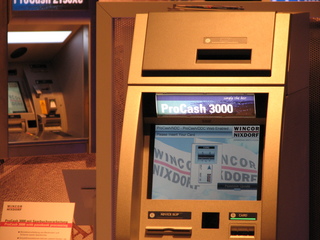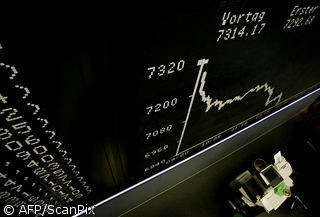It is the only source that can provide a chance for economic breakthrough
Published:
21 March 2005 y., Monday
Money from Russia’s Stabilisation Fund is expected to be invested abroad in dollar-nominated securities, with minimum investment risks and minimum profitability at 2-4%. These funds have until now been kept in Central Bank accounts. This means that a great deal of money will soon appear on the financial markets. On February 1, 2005, the Fund totaled 647.2 billion roubles ($23.1 billion), which mostly came from taxes on oil sales with prices exceeding $20 per barrel and export duties from oil companies.
The crucial question is how this money should be used. Money can only be taken out of the Fund when it has more than 500 billion roubles. Therefore, more than a fifth of its resources can already be used. This is a key issue for Russia’s economy, as the positive overseas market situation in recent years has been almost exclusively responsible for its growth.
However, experts are not tired of repeating that the potential of the resource-oriented Russian economy has been virtually exhausted. The mechanism whereby "we produce oil, sell it and enjoy the benefits" is becoming increasingly less effective. The country is now at a stage when it must introduce an industrial policy. However, any policy only makes sense when there is money to implement it.
Russia’s stock market and banking system do not provide the necessary financing for the real sector of the economy. Direct foreign investment in Russia remains at a very low level, while foreign investment in general is concentrated on either the import of equipment or foreign borrowings. The country obviously needs sources for further growth. The Stabilisation Fund is virtually the only potential source today and a genuine war is being waged for its funds.
Šaltinis:
financialexpress.com
Copying, publishing, announcing any information from the News.lt portal without written permission of News.lt editorial office is prohibited.
The most popular articles
 Nautilus Hyosung announced last week that it had been in talks with Triton and Dover for several months and expected the sale to close before the end of the year.
more »
Nautilus Hyosung announced last week that it had been in talks with Triton and Dover for several months and expected the sale to close before the end of the year.
more »
 Motorola, Inc. through Motorola Ventures, its strategic venture capital arm, today announced that it has made an investment in Amobee Media Systems, a leader in advertising solutions for mobile operators.
more »
Motorola, Inc. through Motorola Ventures, its strategic venture capital arm, today announced that it has made an investment in Amobee Media Systems, a leader in advertising solutions for mobile operators.
more »
 PrivatBank, based in Ukraine, has further strengthened its self-service business with the purchase and installation of 3,100 Wincor Nixdorf ATMs for sites in Ukraine, Russia, Georgia, Cyprus and Latvia.
more »
PrivatBank, based in Ukraine, has further strengthened its self-service business with the purchase and installation of 3,100 Wincor Nixdorf ATMs for sites in Ukraine, Russia, Georgia, Cyprus and Latvia.
more »
 According to final data presented by the Ministry of Finance, national budget revenue of the 1st half-year of the current year amounted to LTL 11 billion 161.8 million, and that was by 1.1 % over the target.
more »
According to final data presented by the Ministry of Finance, national budget revenue of the 1st half-year of the current year amounted to LTL 11 billion 161.8 million, and that was by 1.1 % over the target.
more »
 On 29 July, Lithuanian Minister of Foreign Affairs Petras Vaitiekūnas took part in the European Union’s General Affairs and External Relations Council meeting in Geneva.
more »
On 29 July, Lithuanian Minister of Foreign Affairs Petras Vaitiekūnas took part in the European Union’s General Affairs and External Relations Council meeting in Geneva.
more »
 Statistics Lithuania informs that based on available statistical data and used econometric models, estimated GDP in II quarter 2008 totalled LTL 28393.3 million at current prices and, as compared to II quarter 2007, grew by 5.5 per cent
more »
Statistics Lithuania informs that based on available statistical data and used econometric models, estimated GDP in II quarter 2008 totalled LTL 28393.3 million at current prices and, as compared to II quarter 2007, grew by 5.5 per cent
more »
 Cisco, in collaboration with the Cisco Learning Institute, today announced the results of a study on networking labor needs in North America.
more »
Cisco, in collaboration with the Cisco Learning Institute, today announced the results of a study on networking labor needs in North America.
more »
 Credit card firms are cashing in on customers who use their plastic to take out cash from an ATM, according to new analysis by MoneyExpert.com.
more »
Credit card firms are cashing in on customers who use their plastic to take out cash from an ATM, according to new analysis by MoneyExpert.com.
more »
 Despite deterioration in the economy and general business climate, Wincor Nixdorf International says it expects to reach its financial goal of increasing year-to-year net sales by 8 percent and earnings before taxes and amortization by 10 percent.
more »
Despite deterioration in the economy and general business climate, Wincor Nixdorf International says it expects to reach its financial goal of increasing year-to-year net sales by 8 percent and earnings before taxes and amortization by 10 percent.
more »
 The Ingenico Group recorded (unaudited) consolidated revenue of €186 million for the second quarter of 2008, an increase of 32% at current exchange rate and 35% at constant exchange rate.
more »
The Ingenico Group recorded (unaudited) consolidated revenue of €186 million for the second quarter of 2008, an increase of 32% at current exchange rate and 35% at constant exchange rate.
more »